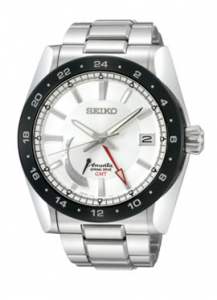 Recruiters and hiring managers love interviews. I have never been sure why that’s the case, but it seems to satisfy a human need for power and control. An interviewer has power to recommend for a job or not. Sometimes an interviewer has the power to actually make the hiring decision, and by holding a person’s economic future and career success in your hands, you can feel very powerful.
Recruiters and hiring managers love interviews. I have never been sure why that’s the case, but it seems to satisfy a human need for power and control. An interviewer has power to recommend for a job or not. Sometimes an interviewer has the power to actually make the hiring decision, and by holding a person’s economic future and career success in your hands, you can feel very powerful.
So anyone wielding such a powerful tool should be certain of its validity and of their skill in using it. The EEOC considers the interview to be a selection test, and requires that it be validated before use. Yet, I would guesstimate that few interviews are validated at all, and the ones that are may not be delivered consistently or by a competent, trained interviewer.
Research has consistently shown that the typical unstructured interview is pretty unreliable. It does not consistently ensure that the most qualified person gets a job or that the person will perform any better than another candidate chosen with less care. In all the studies that I have looked at, the validity of choosing candidates by only using an unstructured interview process is about the same as simply picking someone at random.
Interviews are rarely done consistently from interviewer to interviewer or from candidate to candidate. Yet, we typically consider all the interview inputs for a candidate as if they were done in the same way. Therefore we are comparing apples to oranges, and the hairs we split and the time we spend agonizing over a small detail or a particular answer to an interview question is wasted.
No wonder that candidates often roll their eyes at the absurdity of the interview process.
Assessing candidates is highly subjective, and is based on whatever assumptions (prejudices) the recruiter or hiring manager has, their mood, and the chemistry between them and the candidate. Even factors such as physical appearance, tone of voice, or time of day can impact the interview.
I often ask recruiters to think about what would happen if they selected two candidates for a job who each had the same qualifications and who had known the questions that were going to be asked and had prepared the same answers. If another recruiter interviewed them, would they both receive the same score on the interview, as they should?
DDI and other respected selection organizations offer excellent tools to improve the reliability and validity of interviews, and everyone who does interviewing should be trained in these methods and use them consistently. These well-constructed, validated, and structured interviews given by a trained interviewer can increase reliability by a significant amount, yet they are still only a little more reliable than simply picking a “winner” at random from your final pool.
Carefully constructed interviews, where the questions are directly related to measureable skills, competencies, or past experiences, take a lot of time to prepare and, to be most effective, have to be delivered in a similar way (ideally exactly the same way) to each candidate for the job. This alone would eliminate most of the interviews I have had personally. From my experience as a recruiter and candidate, these rambling, unstructured interviews were far more common. The interviewer ranged over a wide variety of topics, dipping into my resume here and there to ask a question or ask me to validate something they already expected and wanted to hear. In most cases, I could manipulate the interview in subtle ways to make sure my strengths were showcased. In other words, a sophisticated candidate can game the system in many ways to tilt the deck in their favor.
Another Way
On the other hand, there are many tools available to recruiters that could improve their ability to reliably select and recommend candidates that have the depth of skill and aptitude the positions calls for. These tools can save endless amounts of time and free up a recruiter to spend more time sourcing, selling, and ensuring that the candidates are informed and engaged.
These tools include a multitude of screening and testing tools: validated realistic job previews, simulations, aptitude. and skills tests, as well as simple things like asking candidates to actually do something relevant to the job: edit an article, write an advertisement, critique a circuit diagram, locate an error, etc.
Internships are another great way to assess a candidate’s fit into an organization as well as their motivation, interest, and ability – both professionally and to work within a team. While they can be difficult to set up and take time, once they are underway an organization has an almost steady stream of good candidates under assessment.
And still another excellent way to get feedback on past performance and character is to conduct a reference check. Using a tool such as Checkster, you can get anonymous and wide-ranging feedback from many people who have worked with the candidate.
I know many of you use other tools in your evaluation, but I also know you always conduct interviews — often many of them. If the interviews are used to establish a human connection, market the organization or position to the candidate, and are not the primary source of gathering the information to make a decision, I have no issue with them. When they are used as a selection tool — and particularly when we are proud of them as a selection tool — I get concerned. There are many better way to select candidates than the interview, and we should be using them more and more.